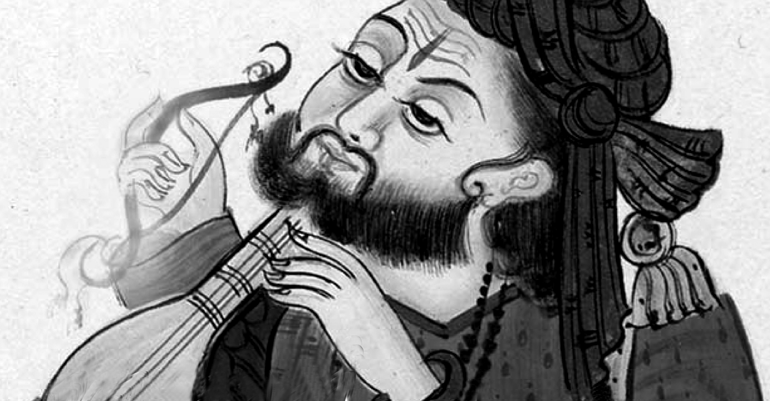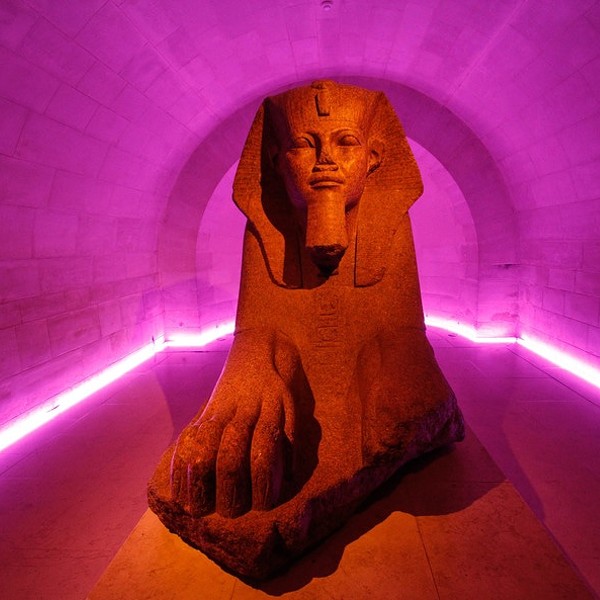
A few years ago, New Age author Andrew Harvey visited the tomb of the 13th-century mystical poet and Sufi teacher Jalaluddin Rumi, which is located in a museum in Konya, Turkey. Though he’s a devout and deeply serious disciple of Rumi’s philosophies, Harvey became giddy as he stood before the tomb and read aloud some of the master’s verses on love and death.“From the tomb was coming such an overwhelming power, a lava-like flow of almost intolerable, tender passion, that it was impossible not to laugh,” recalls Harvey. “To even imagine that Rumi was dead, when he’s the most living being imaginable, is an illusion.”
That view explains the earthly and rather ambitious title “Rumi Embodied” for a symposium at the Kripalu Center for Yoga and Health in Lenox, Massachusetts—part of the worldwide celebration of Rumi’s 800th birthday in 1207. The program will feature an impressive lineup of speakers, headlined by Harvey, author Caroline Myss (Anatomy of the Spirit), and Rumi translator Coleman Barks. Besides inspirational talks, there will be sessions on ecstatic poetry and music, and even a lesson in Sufi whirling.
Such a mix is only fitting, since Rumi was more than a poet. Says Harvey, “he combined the intellect of a Plato, the vision and passion and soul-force of a Christ or Buddha, and the extravagant literary gifts of a Shakespeare.”
Harvey’s five books on the one he calls “the Shakespeare of the soul” have been part of a Rumi revival that’s been growing for the past decade or so. The author believes that it couldn’t happen at a more crucial time.
“The return of Rumi at this moment is the most important sign of the great mystical renaissance and birth that is trying to take place,” says Harvey. “The crisis that is now threatening everything on earth is designed to strip humanity of the dangerous illusions that threaten it and nature’s survival. It is not a punishment, but a terrible grace that will reveal to humanity a wholly new divine power latent within it.… And Rumi is [our] guide through the dark night of the soul.
“We’re not going to reconstruct the world sitting on our cushions, or from anger or demonization of our opponents, or in lofty, ecstatic meditation,” Harvey continues. “Rumi’s message is central to our future existence. We’re going to reconstruct the world, if we are to do it, from a deathless, wild, gorgeous, fiery, tender energy of passion. Rumi lived as that force incarnate on the earth, and is radiating to us the knowledge of that force and the feeling of that force and the passion of that force when we need it most.”
Rumi’s spiritual journey included not just an intimacy with the divine, but some very earthly love as well. A father and grandfather, Rumi also had a male companion, Shams of Tabriz, as well as a devoted pet.
“Rumi is buried with his cat,” Harvey notes, “which refused to eat after he died, and starved itself to death. Rumi’s daughter insisted that the cat be buried in Rumi’s arms. When asked why, she said, ‘Because he was the friend of all creation.’ So Rumi is lying in glory with a little cat in his arms.”
“Rumi Embodied: An Ecstatic Celebration” will be held at the Kripalu Center for Yoga and Health, November 15-18. (866) 200-5203; www.kripalu.org.
















